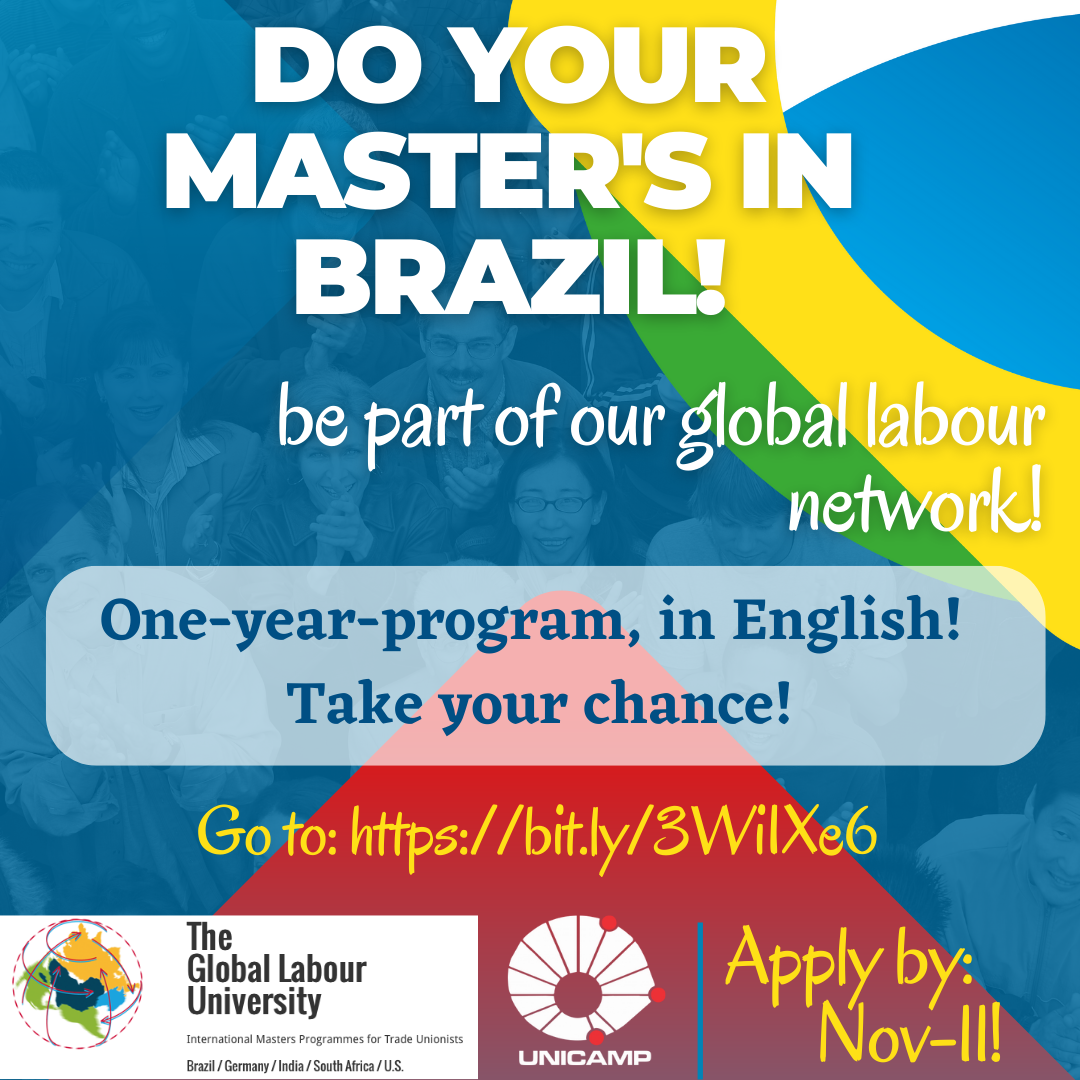
Applications for the programme are still open
With important partners such as the International Labor Organization (ILO) and Friedrich Ebert Stiftung (FES), Central Únicas dos Trabalhadores (CUT), among others, the Global Labor University (GLU), made by and for the organized workers, is open for a master's course at Unicamp, Brazil, until November 11th.
The Brazilian program is taught in English, and since 2014 it has received Brazilians and foreigners at Unicamp University. Candidates can apply for a scholarship and the course lasts for one year, with a globally recognized certificate.
According to Antônio Lisboa, Secretary of International Relations at CUT, "studying at the GLU is a unique experience, because, in addition to an excellent academic content, it is an experience in the practice of international solidarity that strengthens the bonds and unity of the working class in the struggles for social justice."
More than a face-to-face master's program, GLU is an international network for leaders and researchers, with more than 40 online courses and several other initiatives. About 1000 people have already passed through the program, which also takes place in Germany (Kassel University and Berlin School of Economics and Law), the United States (Pennstate University), South Africa (Witwatersrand – Wits) and India (Jawaharlal Nehru University – JNU ).
Short-term face-to-face courses are also now open for enrollment in India and South Africa. "For Unicamp, maintaining this program is very important. We receive many students, especially from the global south, and the relationship between academia and unionism allied to this international connection has generated partnerships and very important results both for union actions and for research ", says the Brazilian Coordinator, Dr. Hugo Dias.
Syndicalism, sustainable development, social justice, international labor standards, multinational companies, economic policies and global institutions are some of the main research focuses at GLU. The institution offers its network an innovative framework for research and policy development. Therefore, the student who enters the master's degree continues, later, to be part of this global network, producing, participating in activities and proposing new actions.